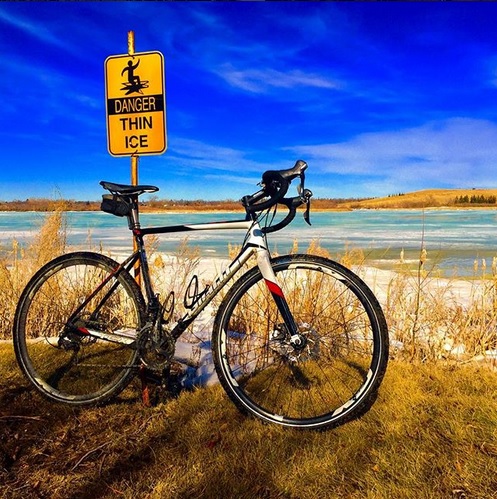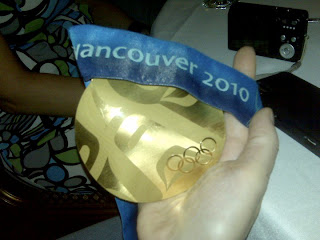Growing up in an immigrant family in a bigger Canadian city, I didn't get to see a lot of wildlife. Other than the occasional trip to a petting zoo or Parc Safari, my occasional companions on my long adolescent walks were stray cats and meandering dogs, pigeons, seagulls and gray squirrels.
At that time I had quite the affinity for seagulls.
First of all they could fly. And I always wanted to fly. In fact I wanted to fly so badly, that one year, I didn't say the word "Super" as in Superman for an entire month in hopes that the powers of Krypton would somehow radiate down to me and give me that ability.
Some years later, when studying physics, I became quite disillusioned and disgusted by superhero flight when I could not reconcile the abilities of levitation and propulsion with the extant gravitational forces of the Earth.
Still, some of my most favourite and happy dreams still involve flight, but it is anything but effortless, I have to start flapping and only then, do I achieve lift. But I digress.
Secondly, seagulls reminded me of the sea, of the ocean and of large bodies of water. I know that somehow my roots are in water and I must make a pilgrimage back to that vast expanse every few years to regenerate and recentre myself.
Thirdly, seagulls reminded me of a favourite vacation I had, on the seaside at Old Orchard Beach. This was the family vacation that I think of when I try to remember good memories with my father and mother.
Lastly, the story of Jonathan Livingston Seagull and later, the movie, created indelible ways of looking at myself, my potential and the world around me.
But when I wasn't trying to fly, there were squirrels.
They were everywhere. They were wild, but they were friendly, not like pigeons. They didn't run away, but wearily tolerated people and often lived side by side. And they didn't have all the baggage that dogs bring or the attitudes brandished by cats.
There was a boy, Trevor P. who had a pet squirrel. I'm trying to remember the squirrel's name. But this squirrel lived in Trevor's house. He was gentle and smarter than a dog - the squirrel, not Trevor. I always saw that squirrel as free, but he always stayed close to Trevor. One day he died. I think he got run over by a car. That's the last I ever thought of that squirrel until now.
I've been in a relationship with a squirrel for about six years. Her name is Nutty Rodante. My daughter gave her a first name. The last name is from me and it is a convoluted nod to both a favourite radio play and to someone with whom I spent several of my formative years.
Girl squirrel, how would I know, you are asking? She has teats and has a yearly litter. Nuff said.
So Nutty has lived a parallel life to mine for a number of years. Sometimes she visits everyday, other times I don't see her for months on end. Sometimes I meet her new brood, and other times I don't. Several years ago she introduced me to Miss Nutella, her daughter. I haven't seen Nutella in several years. Last year Nutty introduced me to the triplets. Before the snows came, there were only two. Traffic is cruel like that.
But Nutty continues to thrive. I rarely see her when it is -40C, but every so often, especially as it warms up, she pops out and sits at the window and clicks for nuts. And she comes scampering when she hears the front or the side screen door.
Nutty prefers walnuts, but she'll settle for almonds. The doesn't overly like peanuts and she turns her nose up at pumpkin seeds, berries and my favourite granola mix, Choo-It.
Last year, Nutty started a Facebook page, with a little help from her friends. She has social network friends in more diverse places than I do. I help her with the pictures, but she gets others to help with her status updates. I understand that Nutty has also sent a video into to America's Funniest Home videos, although I don't really think anything will come of that. Canadian content doesn't often make it down south.
But Nutty is still very much a wild squirrel. She is as friendly as she wants to be. She doesn't tolerate abrasive strangers and she has a routine to which she likes to keep.
The lifespan of Grey Squirrels, I understand can stretch to 20 years, but is usually about 5 years - if they make it past the first year! Their lives can be nasty, brutish and short, but I hope that I have contributed to her quality of life, even a little. My neighbours don't really like the idea of a friendly squirrel, as they look at their attics uneasily. Neighborhood dogs, of course, go OUT-OF-THEIR-MINDS. And cats? They are afraid of Nutty.
But Nutty is growing long in the tooth. Every time I don't see her for an extended period, I wonder if she is on a trip somewhere, or if she has gone on to that final sojourn. I've learned a lot about life from this squirrel. It has taken me some time to realize it, but every interaction with her reminds me of this, even as I realize that it could be our last.
- Don't assume that the people around you notice what you've done, they usually wont.
- Get lots of exercise, you never know when you might have to sprint up a tree.
- Always create options and alternatives, you may never need them, but you often will.
- Don't eat just anything. Take the time to be choosy and you will live long and healthily.
- Don't eat everything all at once, always stash a little food for later, you may get hungry.
- Trust strangers to a point, and know that all friends were once strangers too.
- Trust friends completely, but know, that sometimes, friends may break your heart.
- Cars, no matter how fancy, are just oily, tasteless metal husks. Useful, but often not worth the hype.
- A run through the park will cheer up even the darkest of moods.
- Keep civil relations with all neighbours -- the ones that want to eat you may share a common enemy.
- Groom your fur often and keep your nails and digits healthy.
- Realize that not everything is always what it may seem.
- Never go too far for too long from your tree, you may become lost without it.
- Be kind and respectful to those around you, no matter how small and voiceless.
- Do what you are good at and learn to love it, everything else will follow.
- Take the time to smell the flowers and reflect, you never know what the future will bring.







